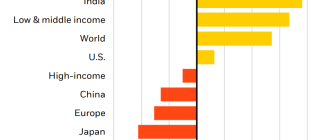As it tightens restrictions on the entry of people into the country, the government of China also holds large-scale campaign to cleanse the public sphere of dissent, censored news reports, the persecution of citizen journalists and the closure of the news sites.
But the Chinese media using public support and widespread calls for freedom of speech, resist rare call of the ruling Communist party.
They publish hard revelations, describing the concealment by the government and failures in the health system. They spread the passionate calls for freedom of the press. They use social media to draw attention to injustice and abuse, avoiding the onslaught of propaganda orders.
Power struggles tried to curb coverage of the outbreak, partly because the Chinese community has resorted to innovative methods to keep the records of what happened.
When the magazine “Profil” published a terrible interview with a doctor who was warned not to share information about the virus during his first distribution in Wuhan, the article disappeared. But Chinese Internet users have brought the story to life, using emoticons, Morse code and weird languages to do the interview this way to avoid censorship.
“This time, state control over freedom of speech has directly harmed the interests and lives of ordinary people,” said Li Datong, the editor of the newspaper retired in Beijing. “Everyone knows that such a big disaster happens when you don’t speak the truth.”





